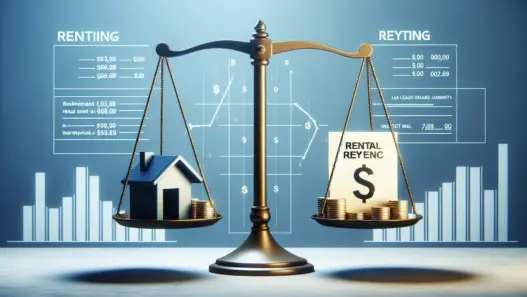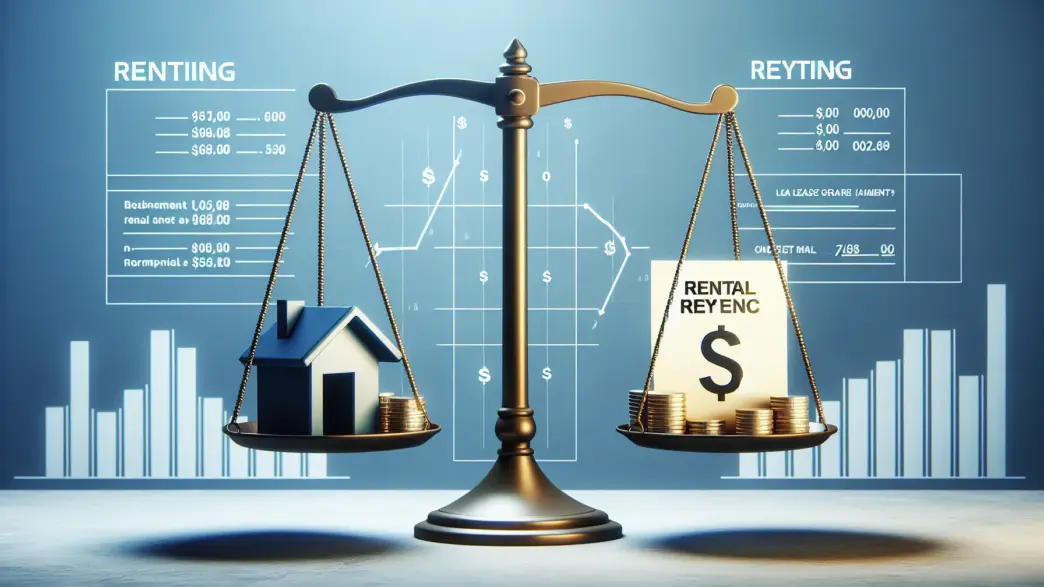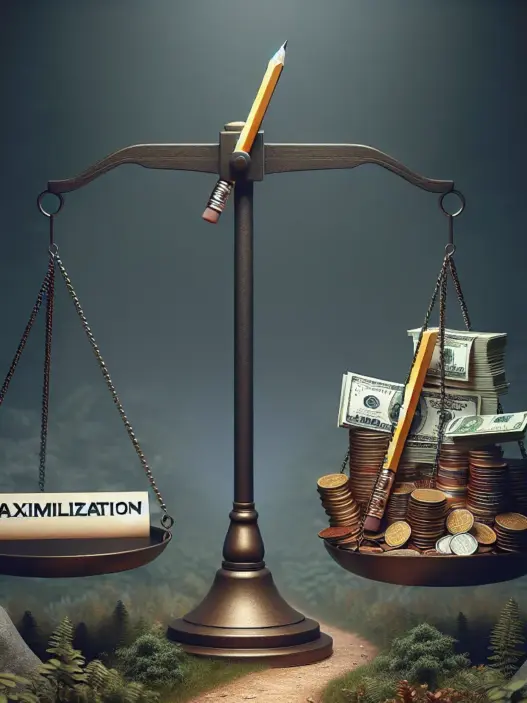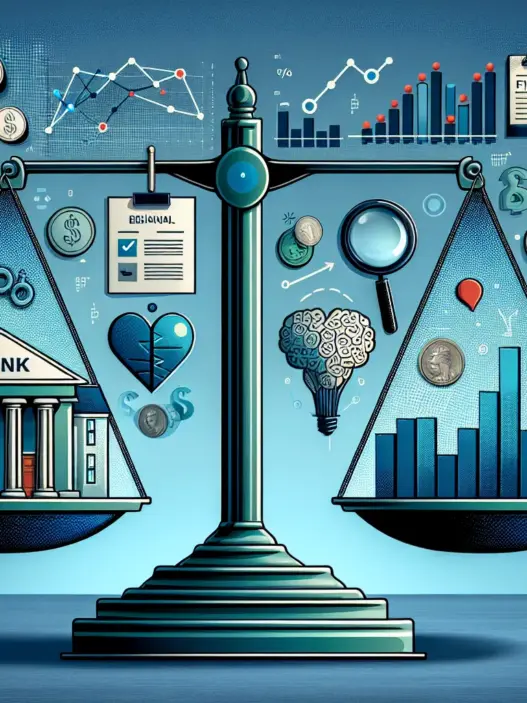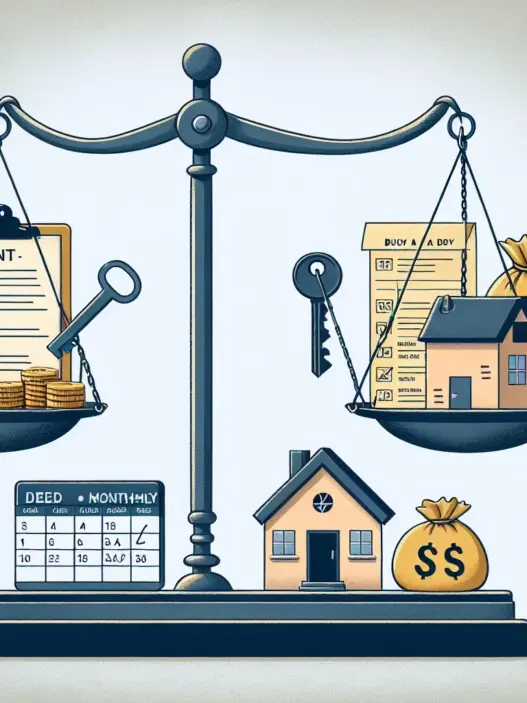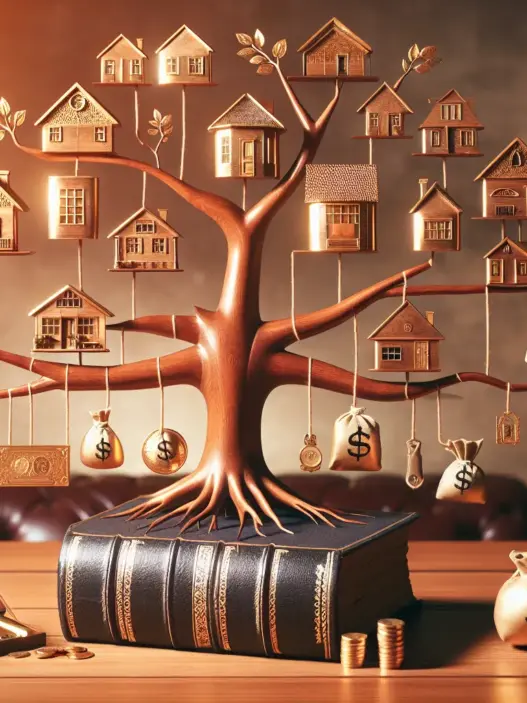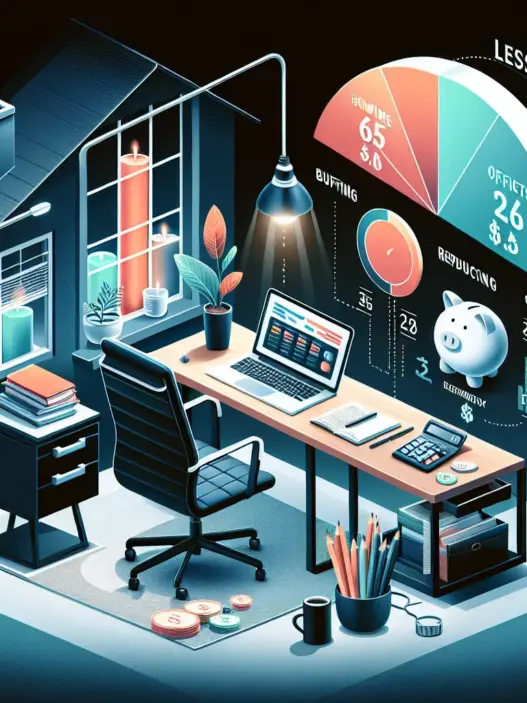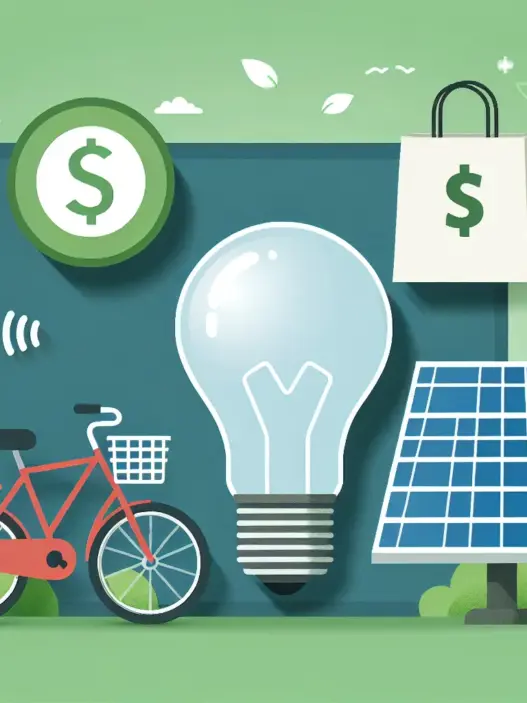In the world of personal finance, few decisions are as significant as choosing between renting a home or buying one. This choice can have far-reaching implications for your financial health, lifestyle, and long-term wealth accumulation. Let’s explore the advantages and disadvantages of each option to help you make a well-informed decision.
The Case for Renting
Flexibility and Mobility
Renting offers unparalleled flexibility. If your job requires frequent relocation or you’re uncertain about your long-term plans, renting allows you to move with relative ease. This flexibility can be particularly valuable for young professionals or those in industries with high job mobility.
Lower Upfront Costs
One of the most significant advantages of renting is the lower initial financial commitment. While buying a home typically requires a substantial down payment, closing costs, and other fees, renting usually only involves a security deposit and first month’s rent.
Predictable Monthly Expenses
Renters often enjoy more predictable monthly housing costs. Your rent is a fixed amount, and in many cases, utilities are included or have predictable costs. This predictability can make budgeting easier and help you maintain financial stability.
Maintenance-Free Living
When you rent, your landlord is responsible for most maintenance and repairs. This can save you both time and money, as you won’t need to worry about unexpected costs for major repairs or replacements.
The Benefits of Buying
Building Equity
One of the primary advantages of homeownership is the opportunity to build equity. As you pay down your mortgage, you’re essentially investing in an asset that can appreciate over time. This equity can be a valuable financial resource later in life.
Potential Tax Benefits
Homeowners may be eligible for certain tax deductions, such as mortgage interest and property tax deductions. These benefits can potentially lower your overall tax burden, although it’s essential to consult with a tax professional to understand how these deductions apply to your specific situation.
Stability and Control
Owning a home provides a sense of stability and control over your living environment. You can modify and improve your property as you see fit, without needing permission from a landlord. This freedom can be particularly valuable for families or those who want to put down roots in a community.
Protection Against Rent Increases
While mortgage payments can change if you have an adjustable-rate mortgage, fixed-rate mortgages offer protection against rising housing costs. In contrast, renters may face annual rent increases, which can be substantial in some markets.
Financial Considerations
The True Cost of Homeownership
When considering buying, it’s crucial to factor in all associated costs. Beyond the mortgage payment, homeowners must budget for property taxes, insurance, maintenance, and potential homeowners association fees. These additional expenses can significantly impact your monthly budget.
Market Conditions and Appreciation
The potential for property appreciation is often cited as a benefit of homeownership. However, real estate markets can be unpredictable, and there’s no guarantee that your home will increase in value. It’s essential to research local market conditions and trends before making a purchase decision.
Opportunity Cost
The money used for a down payment and ongoing housing costs could potentially be invested elsewhere. When deciding between renting and buying, consider the potential returns you might achieve by investing that money in other financial vehicles, such as stocks or bonds.
Long-Term Financial Impact
Retirement Planning
Your housing decision can significantly impact your retirement savings. Homeownership can be a form of forced savings, as you build equity over time. However, if buying a home stretches your budget too thin, it might hinder your ability to save for retirement.
Financial Flexibility
Renting can offer more financial flexibility in the short term, allowing you to adapt quickly to changing financial circumstances. Homeownership, while potentially beneficial in the long run, can tie up a significant portion of your wealth in a single asset.
Making the Decision
Ultimately, the choice between renting and buying depends on your individual circumstances, financial goals, and local housing market conditions. Here are some key factors to consider:
- Your financial stability and credit score
- How long you plan to stay in one location
- The state of the local real estate market
- Your long-term financial goals
- Your willingness to handle maintenance and repairs
It’s also wise to create a personal budget and run the numbers for both scenarios. This can help you understand the true financial impact of each option on your specific situation.
Conclusion
The decision to rent or buy is deeply personal and depends on a variety of factors. While homeownership can offer potential long-term financial benefits, renting provides flexibility and often lower upfront costs. By carefully considering your financial situation, lifestyle needs, and long-term goals, you can make the choice that best aligns with your personal finance strategy. Remember, there’s no one-size-fits-all answer, and what works best for you may change over time as your circumstances evolve.
Frequently Asked Questions
What are the main advantages of renting a home?
Renting offers flexibility, lower upfront costs, predictable monthly expenses, and maintenance-free living. It’s ideal for those who value mobility or are uncertain about long-term plans.
How does buying a home contribute to long-term wealth?
Buying a home allows you to build equity over time, potentially benefit from property appreciation, and enjoy certain tax advantages. It’s a form of forced savings that can contribute to long-term wealth accumulation.
What additional costs should I consider when buying a home?
Beyond the mortgage payment, homeowners should budget for property taxes, insurance, maintenance, potential homeowners association fees, and unexpected repair costs. These can significantly impact your monthly expenses.
How does the decision to rent or buy affect retirement planning?
Homeownership can be a form of forced savings for retirement, but it might limit your ability to save in other ways if it stretches your budget. Renting offers more short-term financial flexibility but doesn’t build equity.
What factors should I consider when deciding between renting and buying?
Key factors include your financial stability, credit score, how long you plan to stay in one location, local real estate market conditions, long-term financial goals, and willingness to handle maintenance and repairs.









